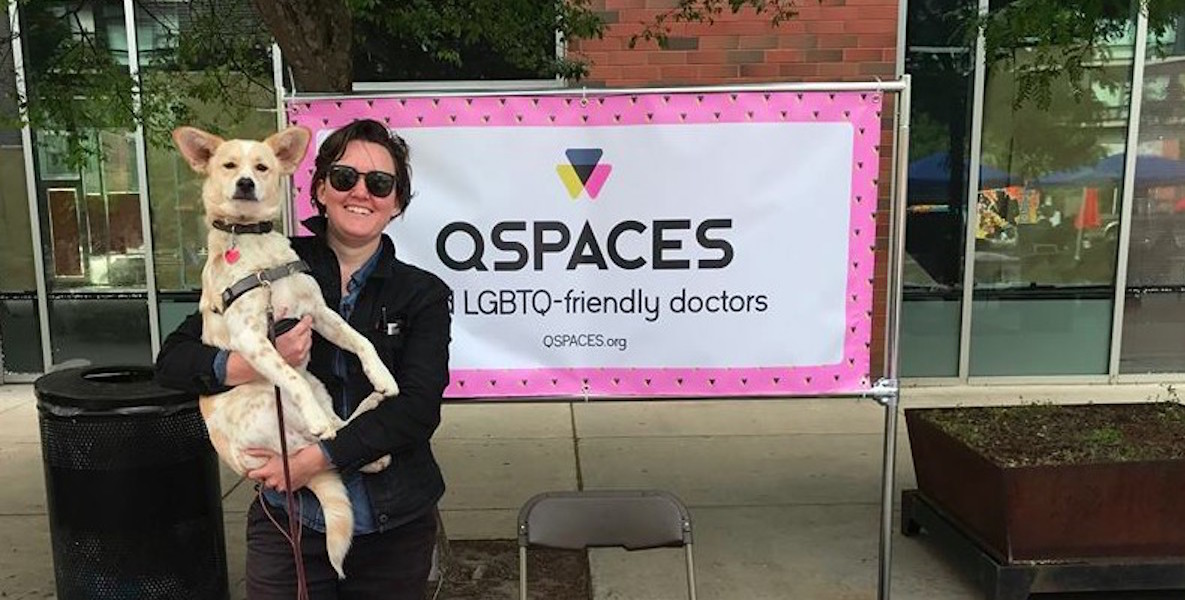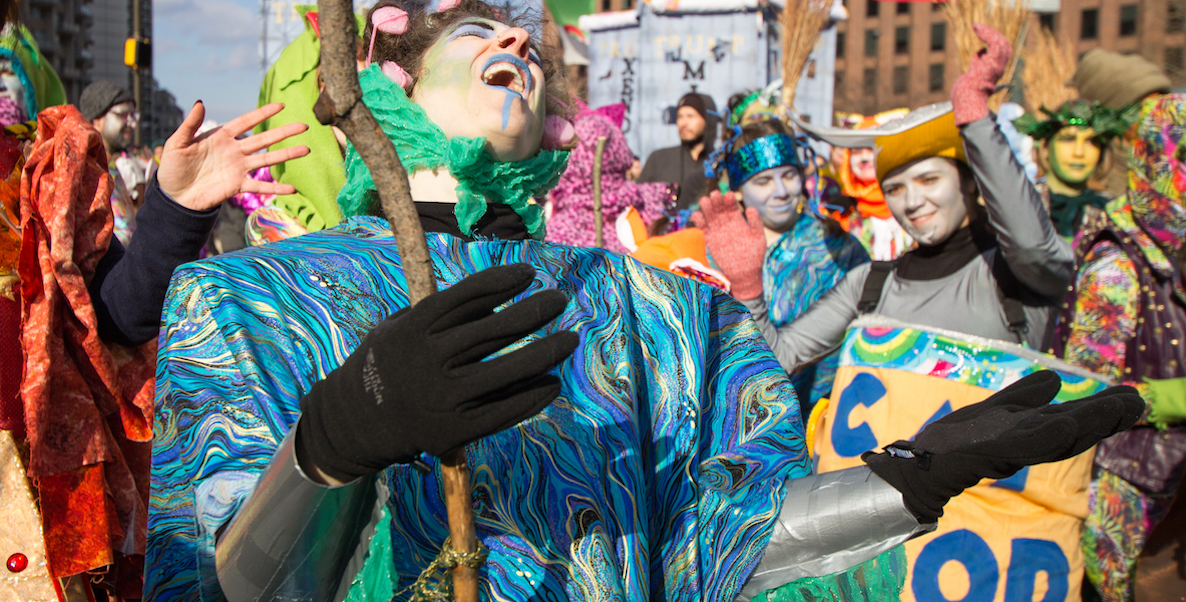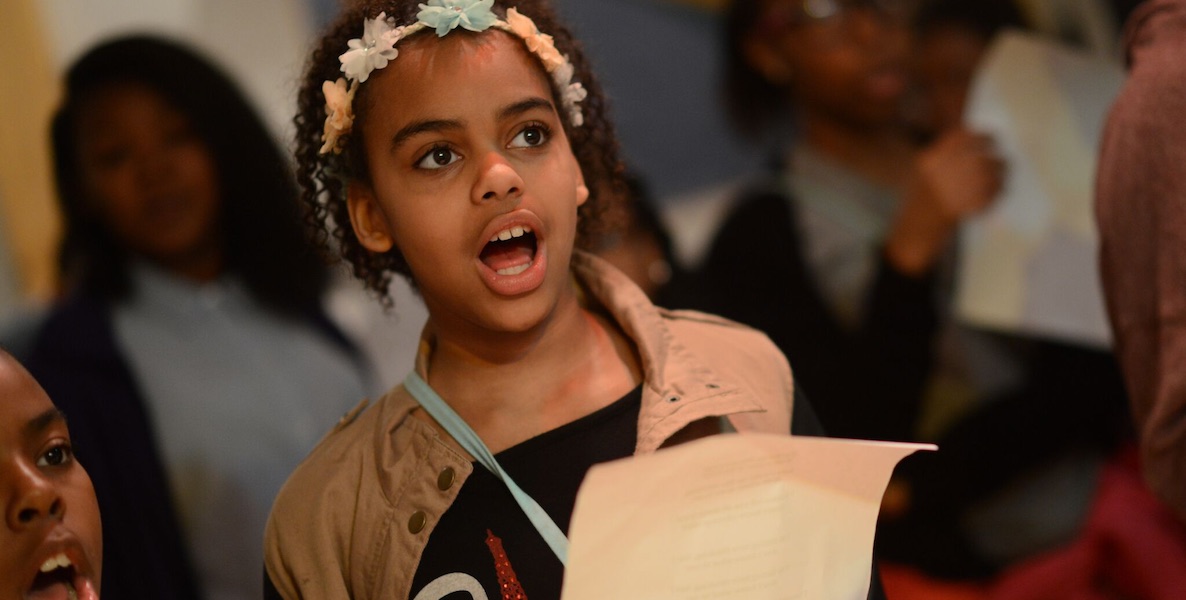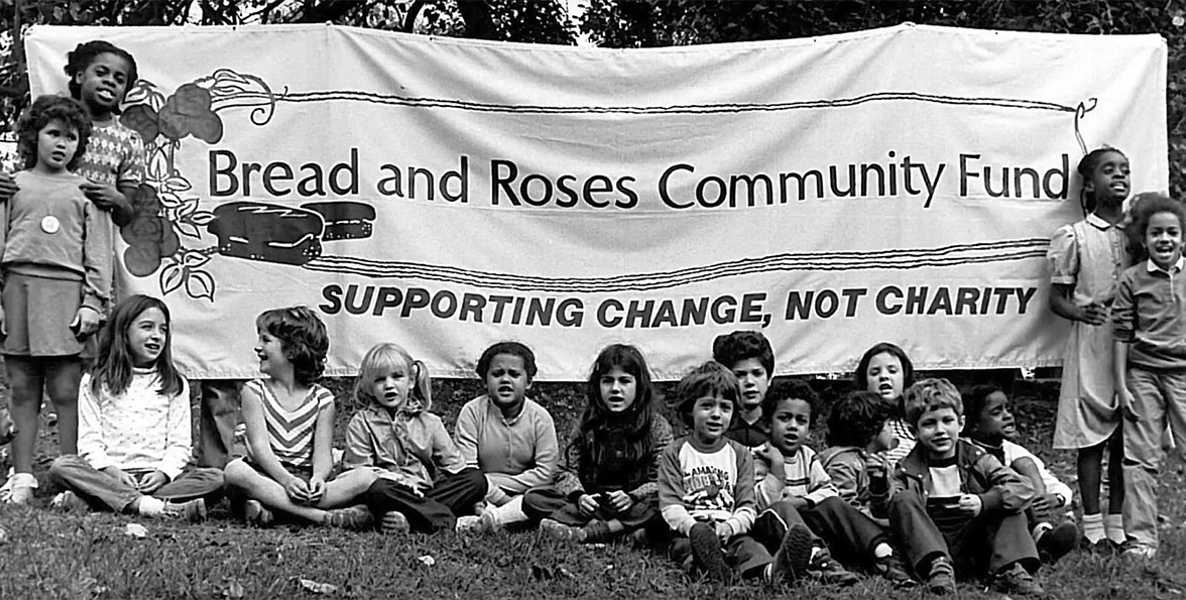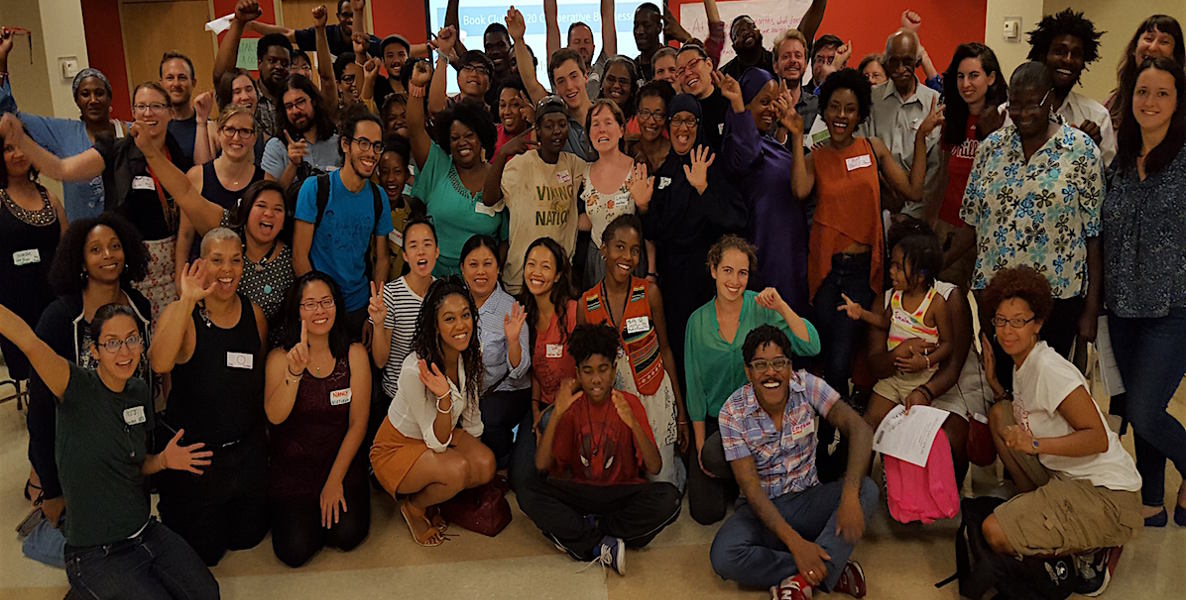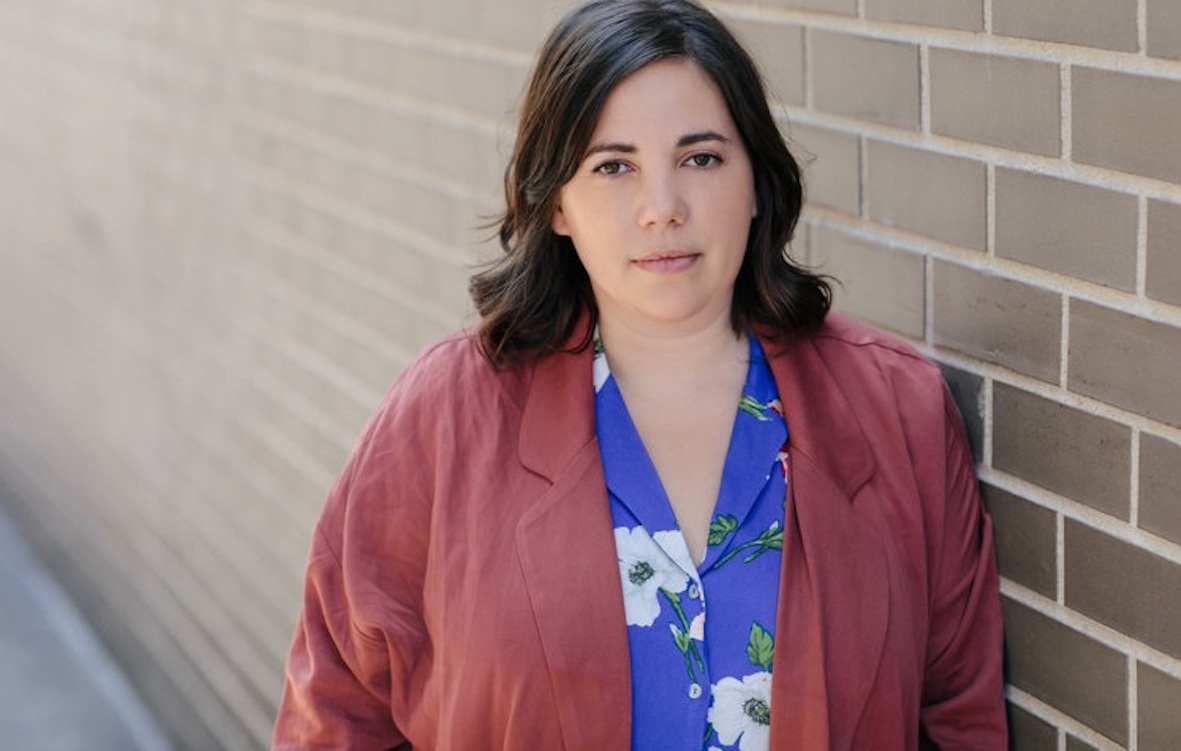In 2009, Emma Copley Eisenberg, struggling to find meaning and purpose, moved to Appalachia’s Pocahontas County to work as a counselor at a girls’ wilderness and empowerment camp.
She quickly learned of the town’s haunting past: In 1980, two young women, en route with a third friend to a peace festival called the Rainbow Gathering, were murdered.
Copley Eisenberg, who grew up in New York City and now lives in West Philly, became fixated: on the story, the players, the evolution—and stagnation—of the town in the wake of the crime.
The result is the lauded The Third Rainbow Girl: The Long Life of a Double Murder in Appalachia, Copley Eisenberg’s debut memoir, which explores the four-decade-old murders that still hang over the community and her experience living in Appalachia.
In addition to writing, Eisenberg in 2018 co-founded Blue Stoop—of which she is the director— a Philly group that convenes, supports and teaches local writers through readings, classes and other events.
Eisenberg, a former Citizen writer, will launch her book on Thursday at the Free Library of Philadelphia’s main branch, where she will explore the story’s larger themes: the severity of violence against women, the parallels of small American towns to the larger American society, and what it means to be a woman—and a man—in today’s world.
Here, she talks about the contradictions inherent in any community, and the stories we tell ourselves and others.
Kiersten Adams: How did you come to want to write about the so-called Rainbow Girls in Pocahontas County?
Emma Copley Eisenberg: I heard about the murders while I was living there and I didn’t think too much of it; then I ended up renting a house just a couple of miles from where the women had died. The first telling of the murders that I heard was that these women were from elsewhere and they came to Pocahontas County to be a part of a hippie festival and the Pocahontas County locals just weren’t having it and were mad about it. Two guys just randomly killed these women—sort of for sex, but also because they were mad they were there. That was the official story; if you Google it, that’s what comes up.
I think if we as a culture allowed more room for uncertainty and not knowing and for things to be contradictory, we wouldn’t jump to these stories that are really damaging and really damage people’s lives.
I think there are ways my experience rhymes with those conditions of why the women came. And then there are ways my experience felt contradictory to that story, and I was just kind of like, This can’t be right. I just didn’t believe it, it smelled wrong, like a lie. So I became interested in learning more about their murders; to retell the official version and also figure out and dig deeper into this contradiction between a little, loving, connected, interesting community, and this violent event that had happened. How could those exist in the same place? was kind of my question.
I had also been hanging out with a bunch of youngish, 20- and 30-year-old men who were good people, smart guys, but were clearly suffering under some kind of inherited toxic masculinity. And feeling like I was connected to them and cared about them a lot and also saw the ways the community at large tolerated sexism felt hard. It felt like, when I learned more and more about the Rainbow Murders, my own experiences were kind of rhyming with some of the conditions that made the Rainbow Murder case so juicy and complicated.
KA: Did you feel push-back from the community as you were working on your reporting?
ECE: I’ve received a lot of different kinds of reactions. I think there is a feeling of people being sensitive to exposure or of being [presented] by media they don’t necessarily trust and that has a history of misrepresenting Appalachia. Any hesitation to participate in the project [was] well-earned. And the reactions to the book itself have really varied. There have been people who’ve said, Yes, this needs to be brought to light and truth-telling about our community is important, it’ll make us stronger. And there have been people who feel It’s not necessary to rehash this and to harp upon negative events that have happened in this place is unnecessary and hurtful. I’m expecting there to be a fair amount of people writing their own opinions. I think letting people respond themselves is important, and they have every right to have any response that feels right to them.
KA: Given the dark content, mentally, what was it like to write this novel?
ECE: It was very difficult. I didn’t realize what dwelling on this material for five to eight years would feel like. The writer Maggie Nelson, who writes about some similar or mature themes, calls it ‘murder mind.’ I went deep into ‘murder mind.’ I think I dreamed about murder, either murdering or being murdered, every night for about two years straight. Which was tough.
![]() And I think I got in touch with a lot of anger as well: at America and this sexist culture we’ve created and the ways that it’s enabled women to be killed and hurt. I got angry at America and its class system and policies that hurt the poor. I got as angry in some ways at the ways the men in the book, the local Pocahontas guys, were incarcerated sometimes for a month to over a year on the basis of a single statement someone made. A lot of people in the community were wrongly incarcerated, or held against their will basically because they couldn’t make bail. Similar to a lot of the stories we’ve been seeing lately about black and brown youths being held for no reason other than the cash bail system. It made me angry, it made me sad being in touch with the women’s families, and with Liz Johndrow, who’s a literal third Rainbow Girl.
And I think I got in touch with a lot of anger as well: at America and this sexist culture we’ve created and the ways that it’s enabled women to be killed and hurt. I got angry at America and its class system and policies that hurt the poor. I got as angry in some ways at the ways the men in the book, the local Pocahontas guys, were incarcerated sometimes for a month to over a year on the basis of a single statement someone made. A lot of people in the community were wrongly incarcerated, or held against their will basically because they couldn’t make bail. Similar to a lot of the stories we’ve been seeing lately about black and brown youths being held for no reason other than the cash bail system. It made me angry, it made me sad being in touch with the women’s families, and with Liz Johndrow, who’s a literal third Rainbow Girl.
But it was also cool because the Rainbow Girls’ [Liz Johndrow, Vicki Durian, Nancy Santomero] family members are really smart and empathetic and made a lot of meaning out of these events. And [the lone surviving Rainbow Girl] Liz was very open and wise, and shared a lot of her insights that she gained because she survived this event. So it was everything: It was difficult but it was also joyful and taught me a lot. I would say if you’re going to write such a book, just have a really good therapist.
KA: How do you feel now that you’ve had time to process your experiences through the writing and publishing of the book?
ECE: I had to ultimately become comfortable with the fact that I would never really know what had happened to them and, by proxy, what that means about Pocahontas County. There’s just so much unknown that we can never know. I think if we as a culture allowed more room for uncertainty and not knowing and for things to be contradictory, we wouldn’t jump to these stories that are really damaging and really damage people’s lives. To know that we don’t know everything.
We need to have empathy for these people, because masculinity is a prison, because schizophrenia is a terrible disease, white supremacy is a terrible disease. We need to hold space for both sides of the story and not try to make one universally true statement out of it.
Especially in criminal justice, it feels really important to create ways to hold empathy for all people involved in the criminal justice system, which is a system that doesn’t automatically give empathy to a lot of people. We need to have empathy for these people, because masculinity is a prison, because schizophrenia is a terrible disease, white supremacy is a terrible disease. [We need to] hold space for both sides of the story and not try to make one universally true statement out of it.
I think I started out being like, This is the story about these two women who are victims and all the ways women are victims of violence against women. Then, as I researched and talked to more people, it seemed equally important to highlight the horror that guys were also victimized and that both of those are true at the same time, which is hard. We want to say someone’s the victim and someone’s the perpetrator but it just doesn’t work that way.
KA: Stepping away from the book for a moment, your other claim to fame in Philly is your role as the director of Blue Stoop—how do you explain to people what that group is and does?
![]() ECE: One of the goals of Blue Stoop is to foster rigor of thought and careful attention to craft. We are really intentional about who we hire and the kinds of subjects and the syllabi those teachers create. Any event or any class that has Blue Stoop’s name attached to it is an intentional space, a careful space that’s interested in really good writing, writing that is saying something new, or challenging a stereotype, or hopefully giving space for someone that might not have had that space before. The process of doing that and having people be excited to participate and offer their knowledge and skills is encouraging to me as a writer, and as a person in this city. I’ve seen so many friends and colleagues have to leave Philly for New York or L.A. because they can’t find work in Philly or they can’t find community and connect with colleagues or readers they want to connect with and I think that’s a real shame. I think we have all those resources in Philly, but it’s just a matter of connecting the resources with the people who need them.
ECE: One of the goals of Blue Stoop is to foster rigor of thought and careful attention to craft. We are really intentional about who we hire and the kinds of subjects and the syllabi those teachers create. Any event or any class that has Blue Stoop’s name attached to it is an intentional space, a careful space that’s interested in really good writing, writing that is saying something new, or challenging a stereotype, or hopefully giving space for someone that might not have had that space before. The process of doing that and having people be excited to participate and offer their knowledge and skills is encouraging to me as a writer, and as a person in this city. I’ve seen so many friends and colleagues have to leave Philly for New York or L.A. because they can’t find work in Philly or they can’t find community and connect with colleagues or readers they want to connect with and I think that’s a real shame. I think we have all those resources in Philly, but it’s just a matter of connecting the resources with the people who need them.
KA: What else should people know about your book?
ECE: I think what I want readers to know about the book is that it’s about a crime, but it’s really using a crime as a lens through which to look at a lot of other things—like Appalachia and Appalachian history, like the ways sexism and misogyny can play out amongst people of different class stances, and just the way that life and survival and the Appalachian Mountain communities still have a long story that is yet to come. And about what it means to be a young, progressive person living in Appalachia, and how that’s connected to our interests as progressive Philadelphians. It’s all connected.
Thursday, January 23, Free Library of Philadelphia, 1901 Vine Street, 215-567-4341; Free.
Photo by Sylvie Rosokoff


